According to former Vikes, alumnus and Olympian Barney Williams is under investigation by both UVic and Rowing Canada for abusive treatment of athletes
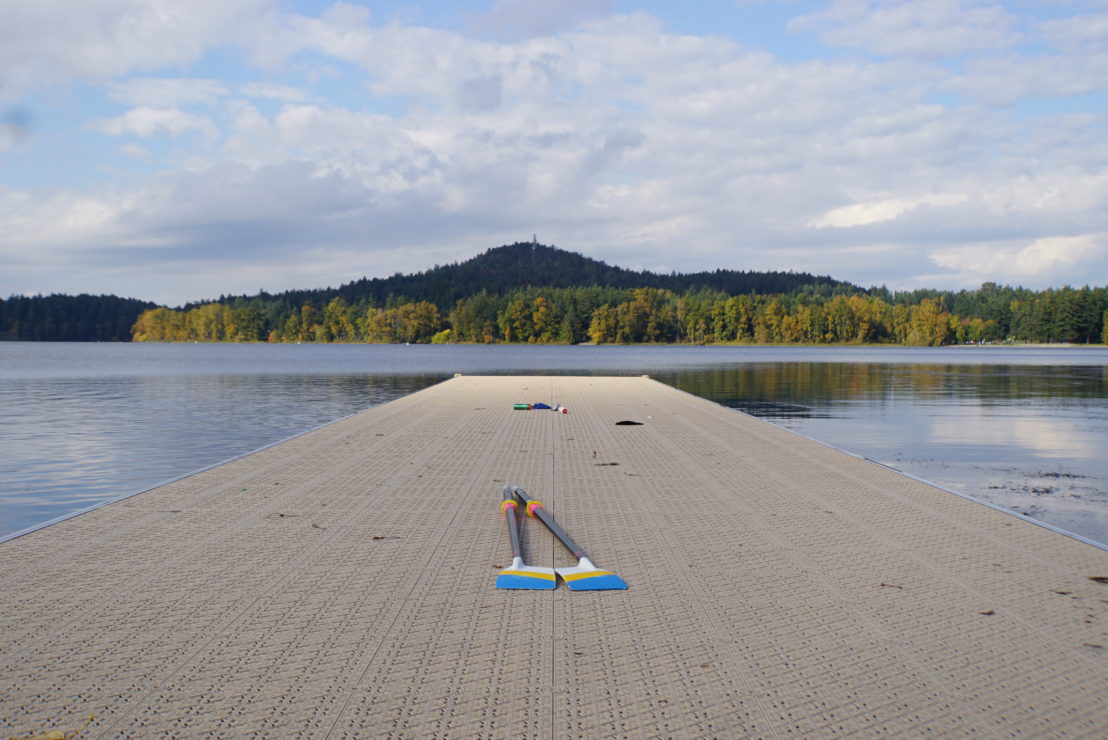
In July 2018, the University of Victoria hired Barney Williams, former Vikes athlete and Olympic silver medalist, as head coach of the Vikes Women’s Rowing Team.
By early September 2018, Assistant Director of Sports James Keogh had begun to receive complaints from athletes about their new coach’s conduct. In December, a female assistant coach brought her own allegations of abuse and harassment to Keogh. In March, with no action taken, complainants involved the Director of Equity and Human Rights. After the issue was brought to Rowing Canada (RCA), UVic opened an investigation. After the Brown Cup at the end of March 2019, Williams was placed on leave.
With both the UVic process and an RCA investigation still incomplete, Williams returned to coaching on Oct. 7.
Throughout the entire process, UVic kept quiet about the context of Williams’s leave, the existence of the complaints, and the resulting investigations. As recently as August 2019, many athletes were unaware that their coach’s absence was for anything other than personal reasons.
During the course of the Martlet’s investigation into Williams’s leave, Keogh allegedly instructed the women’s rowing team not to talk to the media. Even former athletes were told to keep their mouths shut. One former Vike says she received a text message from a current team member who had attended the meeting telling her that everyone involved had been instructed not to speak on the subject, with specific reference to the Martlet.
UVic Media Relations denies all knowledge of athletes being forbidden from speaking to the media.
Despite instructions not to speak to the media, several former Vikes came forward to share their experiences. For their protection, their names have been changed, but these women believe that former, current, and future members of the Vikes Women’s Rowing program deserve to know the reality of the situation.
Blood, sweat, and tears
Training camp, 2018.
Athletes are crowded in the Elk Lake boathouse, refuelling after an on-water training session. They don’t have much time to eat and warm up. According to the posted training schedule, they will soon be back out on the lake for a second workout.
But, unbeknownst to the athletes, Williams has changed his mind. Rather than another on-water workout, he orders the team out for a 10 km run around the lake.
Panic ensues. Having been told they would be on the water, many of the women do not have running shoes. Some only have the sandals they wear on the dock. There is a frantic search through spare shoes kept in the boathouse, but there aren’t enough in the right sizes for everyone.
This is selection week.
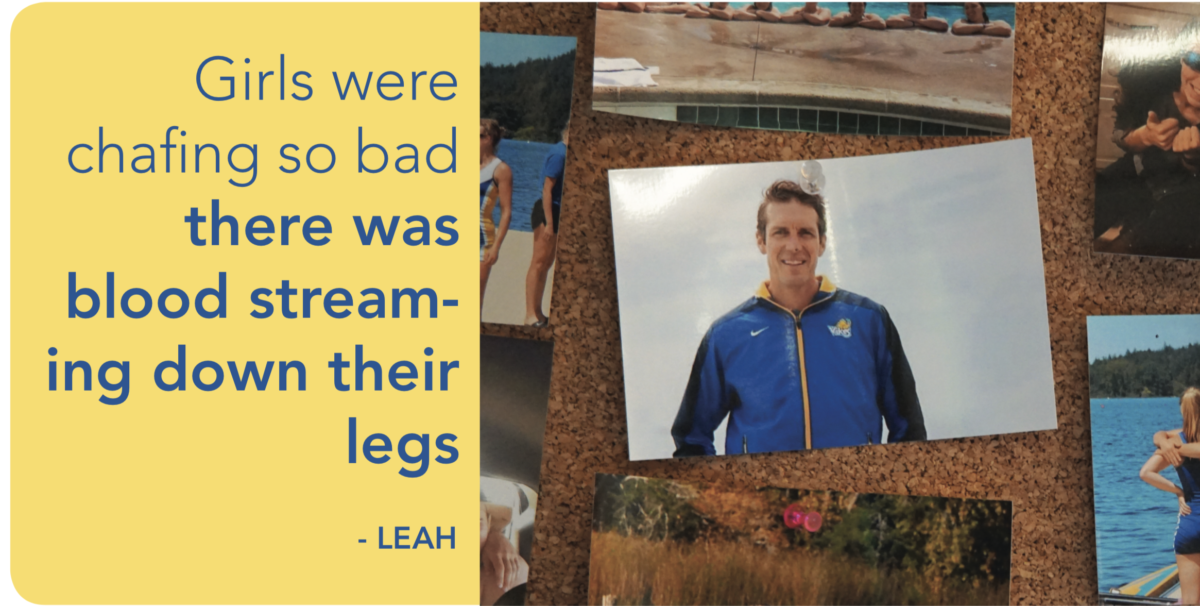
According to athletes, Williams is made aware that many of his athletes don’t have proper footwear. He knows that two women, having not been on the water that morning, have just done the 10 km run route, and one of them has bad shin splints. He makes the choice clear: if you don’t do the run, you’re not on the team.
Rebecca is recovering from multiple knee surgeries. She can row, erg, and do most forms of training, but running is high impact and her surgeon and physiotherapist have told her not to run. Rick Crawley, the previous women’s coach, was supportive, but Williams refuses to give her an alternative. She chooses not to risk reinjury and instead opts to row for the Victoria City Rowing Club (VCRC).
Jamie runs the 10 km in Birkenstock sandals and badly bruises her heel pads. The injury plagues her for the next two months. This is the beginning of the extreme physical toll that rowing for Williams will have on her body. Despite being in a top boat, she will leave the team after Christmas in the worst health of her life.
“Girls were chafing so bad there was blood streaming down their legs,” said Leah, who, because of Williams, will leave the team before the end of September. “Girls were crying. It was brutal.”
Thighs chafed bloody and new injuries are not the only things that make Williams’s first training camp with the Vikes stand out. Former athletes describe a capacity for cruelty, saying that Williams repeatedly humiliated athletes in front of their teammates.
He cuts one woman because, according to an account from an athlete, he says she is “useless” and doesn’t “serve a purpose to the team.” When another athlete who performed well on a two km erg test is unable to complete a six km, an athlete who was present at the time says that Williams tells her, in front of everyone, “You have no value. You’re worthless to this team.”
For Leah, the red flags are adding up. She goes to her team captain, who tells her everything is fine. She goes to the assistant coach, who urges her to give it time. Finally, she takes her concerns to Williams, who allegedly tells her that she is “out of line,” “irrational,” and being a “victim.” Leah is the team’s top lightweight, but Williams says she’s just not pushing herself hard enough.
“Throwing eggs at a wall”
When Amy joined the team, being selected was her sole focus and her goal was to race at the early Nov. 2018 National Rowing Championships. Amy says that, though she is still in love with rowing, Williams’s repeated put-downs and refusal to acknowledge her as an athlete caused her to fall out of love with the Vikes. By the time she left the team in early December, she was crying through erg sessions.
With four courses, some of Amy’s classes conflicted with afternoon strength training and erg workouts. So, Amy trained on her own, following an app used by the entire team. In response, Amy said that Williams told her that she wasn’t respecting the program, wasn’t respecting her teammates, and didn’t have the mindset of an athlete. When Amy asked what he wanted from her and what she could do better going forward, Williams only became angrier and continued to accuse her of disrespecting him.
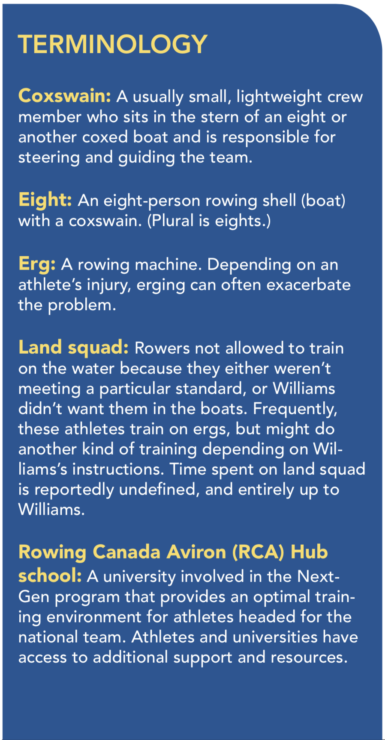
The months that Amy spent on the team were a never-ending fight for a seat in a boat. Rowing is a team sport, but it is also highly individually competitive. Under Williams, athletes said, only those he considered the most elite were guaranteed a spot. Other team members were pitted against each other, without any advice on what they needed to do to improve.
“If you weren’t in [the top eights], you weren’t getting coaching,” Amy said. “He never gave coaching … you took his word as, like, gold. And if he decided that, like, you had some technical change to make and you couldn’t do it on your own … you just weren’t good enough.”
Knowing that Williams doubted her commitment, Amy threw all of her energy into proving him wrong, even going to Samantha Heron, an assistant coach, for advice on how to impress Williams.
“I was always doing the best that I could –– obviously, that’s all anybody would do –– and I was always pulling my hardest, trying my hardest. But it was just never enough,” Amy said. As she described the conversation, she gestured with her hands to illustrate two differing levels. “He told me that I was down here, and I was never going to be up here.”
Rather than coaching Amy, Williams tore her down and told her that none of her previous rowing experience mattered.
“Pretend you’re a novice, pretend you’re a freshman, because, realistically, that’s where you’re at right now,” Williams allegedly said. “Nothing you’ve done so far is comparable to anything that I’m trying to do here. You’re not an athlete. You’re not competitive.”
Amy says that Williams’s treatment caused her to “disassociate” and make herself numb to get through it. By winter, when the team traded their morning on-water training for erg sessions, the strain was taking a toll.
“I just had such intense anxiety that I would be shaking on the erg,” said Amy. “I would just erg and cry.”
She left the team devastated.
“Rowing is already something that’s hard to do,” Amy said. “You’re getting up early in the morning and you’re training three times a day, you’re spending all of your money, you’re hungry all the time, you’re tired all the time, everything is hard. It’s not a fun thing to do, but I loved it, and I’ve always loved rowing, and I still do. [But] getting told that you’re not committed and getting told that you’re not doing what you can … it’s heartbreaking.”
When, in September, Leah decided she was done with the Vikes, she requested that Williams meet her in a public place, but that didn’t stop him from losing it.
“He yelled at me for over an hour about how I was wasting an opportunity, I had cheated the team, I’d lied, I had let them down,” said Leah. There is emotion in Leah’s voice as she describes sitting with tears streaming down her face as Williams berated her.
“It was not like speaking to a rational person,” she said. “He was, like, looking through me. He was just screaming, there was nothing there. When he gets angry, like, a switch flips. He’s not someone you can reason with. He is really, really scary.”
Even though the season had barely started when she left, Leah still had to fight with her former coach to get $600 in team fees back.
“He held it over my head as a way to just threaten me, control me, to keep other people from leaving,” she said. “He told me that it would set a precedent if I got my money back for leaving.”
Leah left because she hated what the team had become under Williams. “It’s throwing eggs at a wall,” she said. “If you survive it then great, and if not, well then you were too weak to begin with.”
Leah is not weak. A top lightweight rower and an RCA Hub athlete, she was an asset to the team, and someone whose rowing career Williams should have encouraged. But, after she went to him with her initial concerns, she said he no longer trusted her.
According to athletes who trained under him, Williams’s MO is to play favourites. He allegedly “elevated people that he thought he could use to get others on board” and gave them “certain privileges” so that they wouldn’t “pay attention to the girls he was mistreating.” Leah believes that this desire to groom the team is why Williams made so many cuts in his first year as coach, slashing the team’s numbers by approximately half that of previous years.
When Leah missed one practice for health reasons, Williams punished her by keeping her off the water for a week.
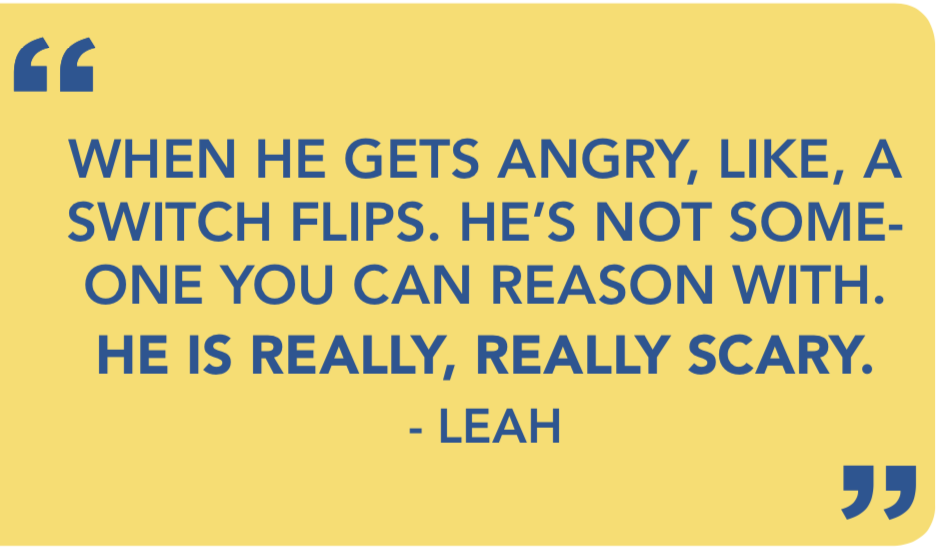
“[Williams] would not talk to me, would not look at me, because that’s what land squad is, right — it’s punishment,” said Leah. “I was only on land squad for a week because he needed me in the boat. There were girls on land squad for months.”
The boathouse at Elk Lake has a small back room that athletes call “the sauna.” According to members of the team, Williams used this room to intimidate athletes he was angry with. Standing at nearly six-foot-four, he would stand between the woman and the door, blocking her way.
One of the coxswains was a frequent victim of Williams’s rage. According to Leah, Williams “would yell at the coxswain, use his body to physically intimidate her. He would poke her and push her around.”
Not only did Williams get inside the rowers’ heads by yelling at them and physically intimidating them, Leah alleges that, as Amy’s story reflects, he drove out athletes that he didn’t have a legitimate reason to cut by “destroy[ing] them mentally.”
“[He would] make them so ground down, and hate themselves so much that they would think they didn’t deserve to be there,” Leah said.
“Sick in the head”
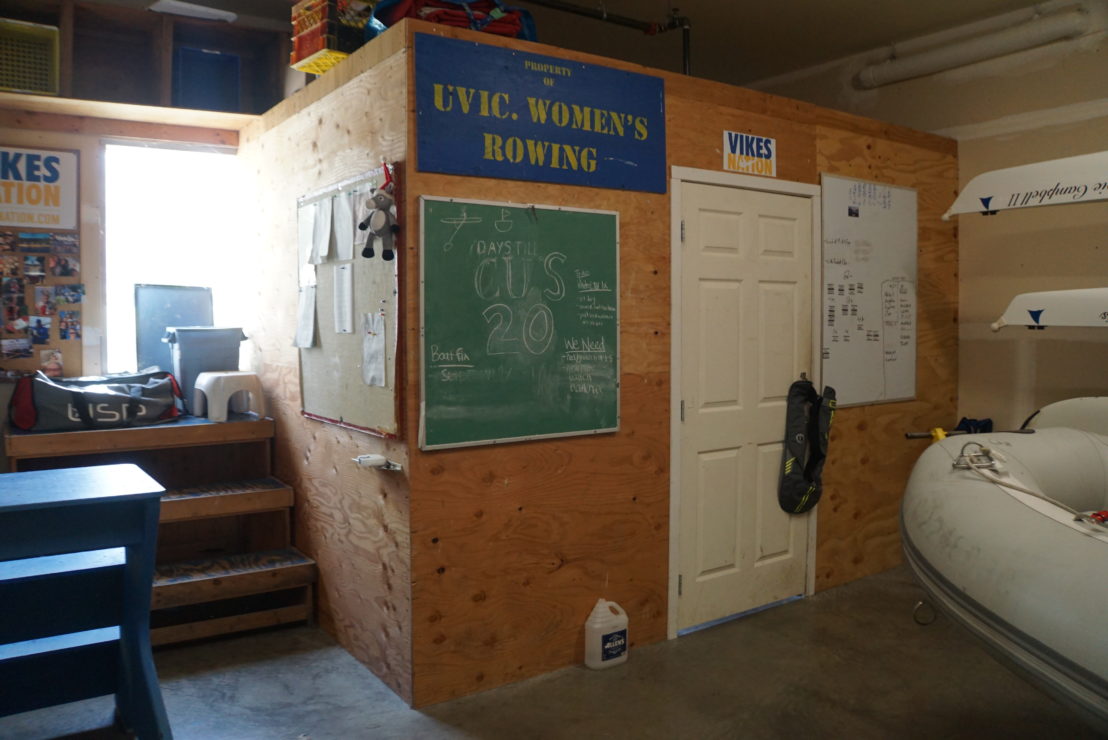
Descriptions of Williams’s coaching practices illustrate a total disregard for team members’ health — mental and physical.
According to Leah, Williams routinely made derogatory comments to members of the team about their mental health. She reeled off a string of examples, including, “Does she need to get her head checked? Is she sick in the head? What the fuck is wrong with you? You’re fucking stupid.”
Williams’s alleged behavior towards the athletes during training camp depicts a lack of concern for the athletes’ physical health.
“If you were injured you weren’t allowed to train with the team,” said Leah. “But you would be land squad — and forced to be on land squad even if you had a doctor’s note stating that erging aggravated your injury. You still had to be on land squad otherwise you were cut.” Where some injured athletes would have benefited from being able to spin instead of erg, this was not allowed.
The bruising Jamie sustained to her heel pads as a result of being forced to complete the training camp 10 km run in Birkenstocks at the beginning of the season lasted until the end of October. The strenuous training program combined with lack of time left for keeping up with schoolwork caused her to develop anxiety. Worst of all, an illness caught at the end of September turned into pneumonia that lasted several months.
Williams response to Jamie’s pneumonia was to tell her to take strong medication to “help.” Had she been another athlete, she might have been relegated to land squad for an indeterminate amount of time, but Jamie was in a top eight –– not rowing was not an option. She kept her spot in the boat with the help of an inhaler and race-approved steroids that she had to use every practice, but she said that her health was “the worst it had ever been.” Exhausted and sick, she left the team after Christmas 2018.
Delays and questions
When Williams was hired in July 2018, he had a probationary period of eight months.
Assistant Director of Sport James Keogh received complaints about Williams within the first few weeks of him taking on an active coaching role. Keogh eventually promised athletes to conduct an early performance review, but allegedly did not follow through.
UVic does not have a coach’s code of conduct.
However, the conduct described by athletes violates of section 3.03 of the UVic Discrimination and Harassment Policy, which defines Personal Harrassment as behaviour that “would be characterized by a reasonable person as: …abusive and demeaning; threatening or intimidating; and either interfering with the targeted person’s participation in a University-Related Activity or creating an intimidating, humiliating or hostile environment. In addition, Personal Harassment must either abuse the power one person holds over another or misuse authority or constitute a pattern of mistreatment.”
By the time an assistant coach made a complaint around December, no action had allegedly been taken. In fact, the first meaningful action by UVic came after the assistant coach turned to Rowing Canada (RCA).
UVic is an RCA Hub school, and so RCA provides support and resources to both athletes and the university.
This action came in March, just before the Brown Cup, a prestigious regatta based on the UVic-UBC rivalry, in the form of a survey distributed to the athletes who were still on the team — excluding Leah, who had been going to Keogh since September, and other former team members who were involved in the complaint process.
According to Leah, UVic demonstrated extraordinarily “unfair” timing to ask athletes, a week before a major event, to “give honest opinions about their coach, knowing they will be cut.” Williams is not the sort of coach to let a negative review slide, she said.
“Trust was huge. As soon as you lost his trust, you were cut,” Leah said. “Or, not literally cut, but you would be socially isolated until you left.”
Leah alleges that Keogh’s delays were intentional, in order to let the probationary period expire, making the process for getting rid of an abusive coach much more challenging. This months-long delay forced the athletes to involve UVic Equity and Human Rights.
She believes that Keogh has protected Williams at the expense of the women’s rowing team. “They’ve known each other for many, many years,” Leah said. “James is a former rower.”
Neither Keogh, Media Relations, nor Williams would comment on the nature of the relationship between Keogh and Williams.
The Martlet requested an interview with Keogh, but was referred to UVic Media Relations who, citing privacy policy and confidentiality, refused to confirm or deny the existence of an investigation. UVic Equity and Human Rights responded likewise.
In response to a Freedom of Information request for files and correspondence regarding the complaints allegedly filed against Williams, UVic told the Martlet that they could neither confirm nor deny the existence of such documents.
The Martlet contacted Williams, but he refused to answer any questions, citing confidentiality and privacy reasons.
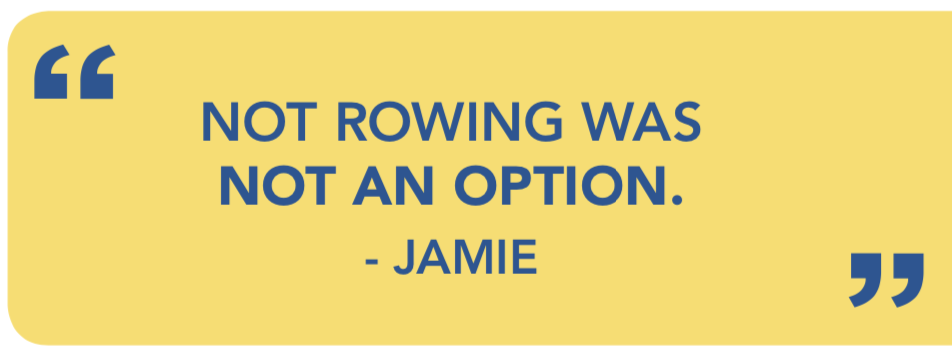
Throughout the entire process, Leah said, she and the other athletes were questioned.
“[They asked] do I realize the severity of what I’m accusing him of? Why can’t I just get over it? I’m just being a victim, he has a family to take care of,” said Leah, reiterating the comments she heard from university staff. “What the university has been arguing is that these girls are just disgruntled athletes that didn’t make the boat they wanted, didn’t make the team, and so they’re just taking it out on Barney and taking this too far.”
In fact, the four athletes who chose to file formal complaints did so at the expense of being Vikes — according to Leah, all are no longer on the team. The assistant coach who took her complaint to RCA following UVic’s inaction did not coach for UVic over the summer. She is back with the Vikes for the 2019-2020 season, but she now works with the men’s rowing team.
“It was part of the understanding that [Williams] was not allowed to treat athletes poorly based on their involvement [in the complaint process], but obviously that doesn’t happen in practice,” said Leah. “As soon as these girls submitted their statements, they all left the team [either immediately or] at the end of the summer when it became clear that he would be coming back [to coaching].”
In some ways, in a startling display of disregard for the legitimacy of the complaints, it appears Williams’s return may have always been inevitable.
“All through this, UVic stated that [Williams’s leave] was for personal reasons,” Leah said. She alleges that UVic purposely did not inform the women’s rowing team that their coach was under investigation by both UVic and RCA.
Rebecca, too, sees the lack of openness and denial of the problem as a failure on UVic’s part. “They’re so set on him coming back, and I think that’s just ‘cause they’re all buddies,” Rebecca said, “which I think is messed up.”
One year later
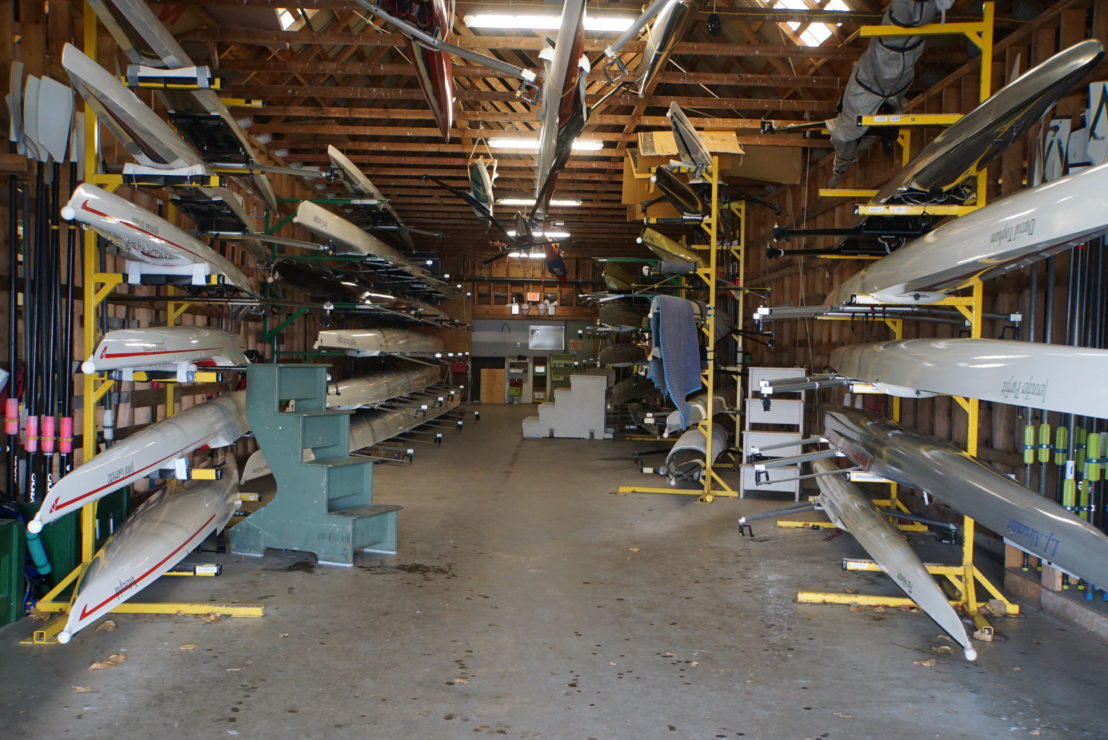
Training Camp, 2019
Rebecca returns to the Vikes training camp to test her two km and six km erg times. She has considered coming back to the Vikes, but this experience will set her mind against it.
Williams is on leave and under investigation by two different entities, but he is still the listed contact for the Vikes Women’s Rowing tryouts. Allegedly, he has designed the entire training schedule, right down to the 10 km run. He isn’t there to witness the athletes’ performance, but an athlete says he’s still making the selection based on erg scores.
This time, the run is included in the training schedule, so the women know to bring appropriate gear.
The final selection is small, only 21 women, whereas the previous Vikes Women’s Rowing Team Head Coach Rick Crawley had usually taken around 40. Twelve of those rowers are high-performing athletes pre-selected for the team.
At Victoria City Rowing Club, Rebecca knows a few former Vikes who swear they will never again row for UVic after what they experienced under Williams. As for Rebecca, she would love to one day return to represent her school, but with one caveat –– UVic has to have a good coach.
Leah, one of the first athletes to defy Williams and leave the Vikes on her own terms, is still involved in rowing. Williams’s return to coaching on Oct. 7 means he is back at the Elk Lake boat house, where Leah sees him every day.
Leah’s goal in continuing to pursue action against Williams, despite having left the team over a year ago, is to protect both herself and other athletes. She doesn’t believe Williams will change, and she knows that the end of his leave marks the beginning of her looking over her shoulder.
“I’m scared,” she says. “I’m expecting that he’s going to keep his distance … But like I said, he’s not rational. He could do anything. I really don’t know.”







